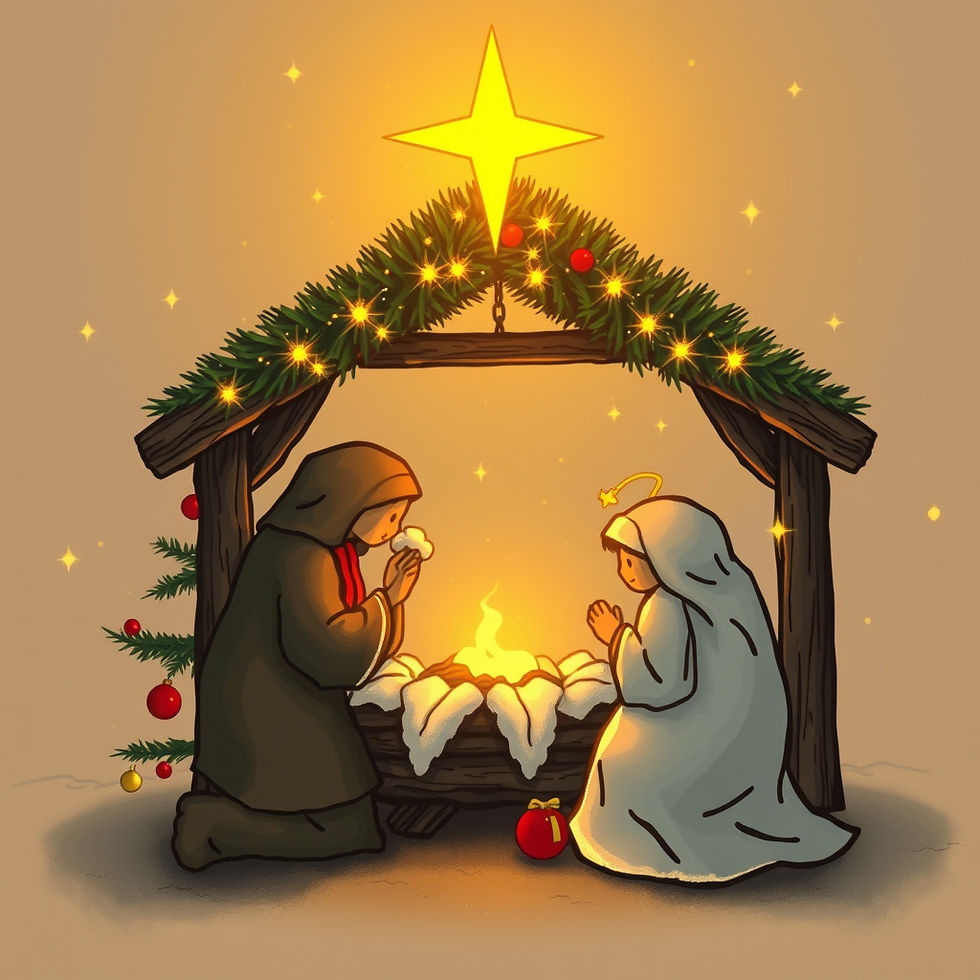At Christmas God Gave Us A Savior
- Eldon Peterson
- Dec 18, 2020
- 3 min read
It is likely that at some point during the Christmas season you’ve heard or seen these words from Isaiah, “For to us a child is born, to us a son is given; and the government shall be upon his shoulder, and his name shall be called Wonderful Counselor, Mighty God, Everlasting Father, Prince of Peace.” (9:6) The announcement of Jesus’ birth was written over 700 years before His birth. We shouldn’t be surprised that the birth of this child changed the course of history.
There are certain dates in history that stand out in our minds. Printed on your calendar are dates remembering horrific events like Pearl Harbor Day or 9/11. Others celebrate joys and freedoms like Thanksgiving and the 4th of July. Then you will find dates that have been handwritten like birthdays and anniversaries. These dates mark something in the past that we don’t want to forget.
Someone recently asked me about the date for Christmas, and while the evidence strongly suggests that Jesus was not born on December 25, it does not mean that remembering his birth on that day is meaningless. While the first recorded date of Christmas being celebrated on December 25th was in 336, during the time of the Roman Emperor Constantine, I wonder if at Christmas we should be celebrating a date on the calendar or the fact that “For unto us a savior is born”.
For example, if I desired to honor you with a birthday gift, should the date that I give it to you matter? Is it the day on the calendar that I am celebrating or it is you? I find that the same is true with our Christmas celebration – December 25 gives us a date when we can pause and consider how God’s gift of love was revealed to us in Jesus’ birth. This is well stated in the familiar words, “For God loved the world in this way: He gave his one and only Son, so that everyone who believes in him will not perish but have eternal life.” (John 3:16)
This verse is about much more than how to gain eternal life. Imbedded in it we find instructions on how we are to live our daily lives. Notice how it begins, “For God loved the world”; everything flows out of God’s love for us. It is because God loved the world that Jesus was born as a man and died as a man, so that our sins could be forgiven and we could receive eternal life.
It’s likely that you are familiar with this thought, but see how second phrase is equally important. God gave. God gave what? John 3:16 tells us that God gave us a savior, but there are other things that God gives. Genesis tells us that God is the giver of all life. Jesus says that God “gives his sunlight to both the evil and the good, and he sends rain on the just and the unjust alike.” (Matthew 5:45)
Possibly the greatest summation of what God gives is found in James 1, “Every gift God freely gives us is good and perfect, streaming down from the Father of lights, who shines from the heavens with no hidden shadow or darkness and is never subject to change. God was delighted to give us birth by the truth of his infallible Word so that we would fulfill his chosen destiny for us and become the favorite ones out of all his creation!” (James 1:17-18)
At Christmas we are wise to pause and consider what this means. Christmas is about far more than a date on the calendar, or gifts under the tree, it is all about the gift that of life that God has given us in Christ. The child’s birth remembered at Christmas celebrates the hope that can be ours in the Son given to us.
I thank God for dates like Christmas and Easter where we can remember what He did for us. I thank Him for how He so loved the world that He gave us the priceless gift of His Son so that we might have eternal life. This Christmas remember and celebrate how God’s love for us is revealed in the Father sending His Son to be born in humility, as a man, to bring us salvation and to give us the free gift of eternal life. I pray for you to be blessed as you discover the true meaning of Christmas and see how every gift God freely gives us is good and perfect.




Comments